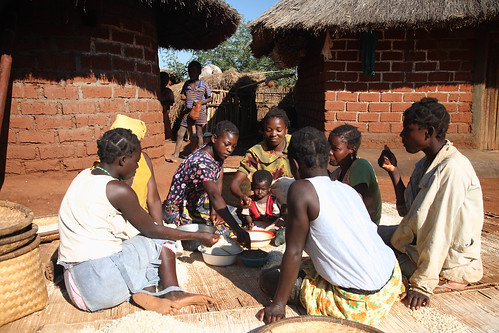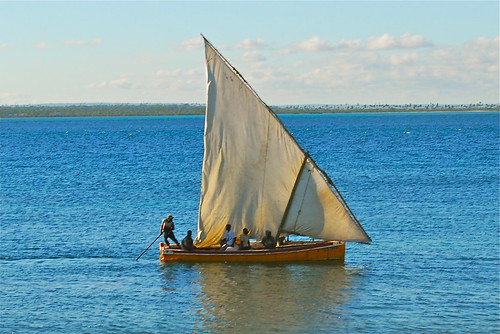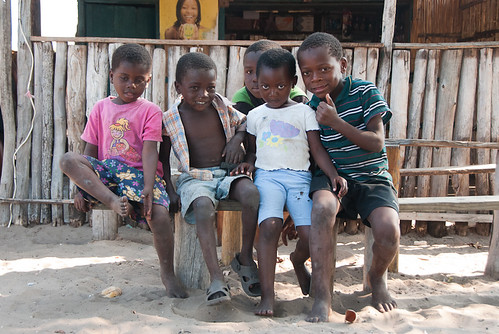Difference between revisions of "Adopting from Mozambique"
(→Who Can Adopt) |
(→Who Can Be Adopted) |
||
| Line 72: | Line 72: | ||
=Who Can Be Adopted= | =Who Can Be Adopted= | ||
| + | In addition to U.S. immigration requirements, Mozambique has specific requirements that a child must meet in order to be eligible for adoption: | ||
| + | |||
| + | |||
| + | '''[[Relinquishment]]:''' In order to be eligible for adoption, a child must be relinquished by both parents. However, there is an exception if the prospective [[Adoptive Parent|adoptive parent]] is the spouse of a biological parent or a partner with whom the biological parent has been living for at least three years. In these situations, only the biological parent who is not living with the minor child and the prospective [[Adoptive Parent|adoptive parent]] must relinquish [[Parental Rights|parental rights]]. | ||
| + | |||
| + | '''[[Abandonment]]:''' A child of unknown parents. | ||
| + | |||
| + | '''Age of Adoptive Child:''' The prospective adoptive child must be a minor under 14 years of age, or 18 years of age if s/he has been fostered by the prospective [[Adoptive Parents|adoptive parents]] since 12 years of age. | ||
| + | |||
| + | '''Sibling Adoptions:''' None | ||
| + | |||
| + | '''[[Special Needs]] or Medical Conditions:''' None | ||
| + | |||
| + | '''Waiting Period or Foster Care:''' The adoption is generally preceded by a minimum adaptation period of six months, in which the prospective [[adopted]] child is integrated into the family via foster care before the legal adoption is finalized in the court. This process must take place in Mozambique. | ||
| + | |||
| + | '''Caution:''' Prospective [[Adoptive Parents|adoptive parents]] should be aware that not all children in orphanages or children’s homes are adoptable. In many countries, birth parents place their child(ren) temporarily in an orphanage or children’s home due to financial or other hardship, with the intention of returning for the child when they are able to do so. In such cases, the birth parent(s) have rarely relinquished their [[Parental Rights|parental rights]] or consented to their child(ren)’s adoption. | ||
=How to Adopt= | =How to Adopt= | ||
Revision as of 01:40, 6 April 2014
Contents
Hague Convention Information
Mozambique is not party to the Hague Convention on Protection of Children and Co-operation in Respect of Intercountry Adoption(the Hague Adoption Convention). Intercountry adoptions of children from non-Hague countries are processed in accordance with 8 Code of Federal Regulations, Section 204.3 as it relates to orphans as defined under the Immigration and Nationality Act, Section 101(b)(1)(F).
Prospective adoptive parents must be legal residents of Mozambique and must be present in the country for the duration of the adoption process. This includes a six month integration period after a prospective adoptive child is placed in the home, and before the adoption can be finalized by the court. (Visit the Embassy of Mozambique website for current visa information.) Additionally, married prospective adoptive parents must be married for three years prior to the initiation of the adoption process. The marriage can be civil, religious, or traditional, as long as it is registered. Civil marriages are registered with the civil registrar. Religious marriages are registered with the office of the religious denomination chosen by the given couple. This is done by having the community leader, married couple, and their witnesses sign a declaration and taking it to the relevant district office. Traditional marriages require the presence of the community leader and at least two witnesses. This is done by presenting witnesses to the appropriate district official. In cases in which the marriage took place at least three years prior to the initiation of the adoption, but was not registered, the prospective adoptive parents may invoke common law.
The Government of Mozambique requires post-adoption monitoring until the child reaches 21 years of age. This requirement may be waived at the judge’s discretion. However, the courts may not grant an adoption if the child will be immediately taken out of Mozambique.
Changes to Mozambique’s intercountry adoption laws are under consideration by Unidade Technica da Reforma Legal (UTREL), which drafts and proposes laws for the Government of Mozambique. To date, no substantial amendments have been made to the existing laws. Mozambican law does not make a distinction between intercountry and domestic adoption. This may mean that foreigners will be expected to meet the same pre- and post-adoption monitoring requirements as Mozambican families, which may become an obstacle if the court decides the child cannot be monitored outside of Mozambique.
U.S. IMMIGRATION REQUIREMENTS FOR INTERCOUNTRY ADOPTIONS
To bring an adopted child to the United States from Mozambique, you must meet eligibility and suitability requirements. The U.S. Department of Homeland Security, U.S. Citizenship and Immigration Services (USCIS) determines Who Can Adopt under U.S. immigration law.
Additionally, a child must meet the definition of orphan under U.S. law in order to be eligible to immigrate to the United States on an IR-3 or IR-4 immigrant visa.
Who Can Adopt
In addition to U.S. immigration requirements, you must also meet the following requirements in order to adopt a child from Mozambique:
Residency
Prospective adoptive parents must be legal residents of Mozambique and must be physically present in Mozambique for the duration of the adoption process, including a six-month integration period after a prospective adoptive child is placed in the home and before the adoption can be finalized by the court.
Age of Adopting Parents
Prospective adoptive parents must be over 25 years of age and less than 50 on the date the child is entrusted to them, unless the child is the biological son or daughter of one of the prospective adoptive parents.
Marriage
Prospective adoptive parents must be married for three years prior to the initiation of the adoption process. Single people are not eligible to adopt. The Government of Mozambique does not legally permit same-sex couples to adopt.
Income
None.
Other
Prospective adoptive parents must undergo a home study evaluation by Mozambican social and health workers from the country’s child welfare office and must be certified approved for adoption.
Who Can Be Adopted
In addition to U.S. immigration requirements, Mozambique has specific requirements that a child must meet in order to be eligible for adoption:
Relinquishment: In order to be eligible for adoption, a child must be relinquished by both parents. However, there is an exception if the prospective adoptive parent is the spouse of a biological parent or a partner with whom the biological parent has been living for at least three years. In these situations, only the biological parent who is not living with the minor child and the prospective adoptive parent must relinquish parental rights.
Abandonment: A child of unknown parents.
Age of Adoptive Child: The prospective adoptive child must be a minor under 14 years of age, or 18 years of age if s/he has been fostered by the prospective adoptive parents since 12 years of age.
Sibling Adoptions: None
Special Needs or Medical Conditions: None
Waiting Period or Foster Care: The adoption is generally preceded by a minimum adaptation period of six months, in which the prospective adopted child is integrated into the family via foster care before the legal adoption is finalized in the court. This process must take place in Mozambique.
Caution: Prospective adoptive parents should be aware that not all children in orphanages or children’s homes are adoptable. In many countries, birth parents place their child(ren) temporarily in an orphanage or children’s home due to financial or other hardship, with the intention of returning for the child when they are able to do so. In such cases, the birth parent(s) have rarely relinquished their parental rights or consented to their child(ren)’s adoption.
How to Adopt
Adoption Authority
The Process
Traveling Abroad
Applying for Your U.S. Passport
A valid U.S. passport is required to enter and leave Mozambique. Only the U.S. Department of State has the authority to grant, issue, or verify U.S. passports. Getting or renewing a passport is easy. The Passport Application Wizard will help you determine which passport form you need, help you to complete the form online, estimate your payment, and generate the form for you to print-all in one place.
Obtaining Your Visa
In addition to a U.S. passport, you also need to obtain a visa. A visa is an official document issued by a foreign country that formally allows you to visit. Where required, visas are attached to your passport and allow you to enter a foreign nation. To find information about obtaining a visa for Mozambique, see the Department of State's Country Specific Information.
Staying Safe on Your Trip
Before you travel, it's always a good practice to investigate the local conditions, laws, political landscape, and culture of the country. The State Department is a good place to start. The Department of State provides Country Specific Information for every country of the world about various issues, including the health conditions, crime, unusual currency or entry requirements, and any areas of instability.
Staying in Touch on Your Trip
When traveling during the adoption process, we encourage you to register your trip with the Department of State. Travel registration makes it possible to contact you if necessary. Whether there's a family emergency in the United States, or a crisis in Mozambique, registration assists the U.S. Embassy or Consulate in reaching you. Registration is free and can be done online.
After Adoption
SOURCE
Intercountry Adoption, Bureau of Consular Affairs. U.S. Department of State Country Information











